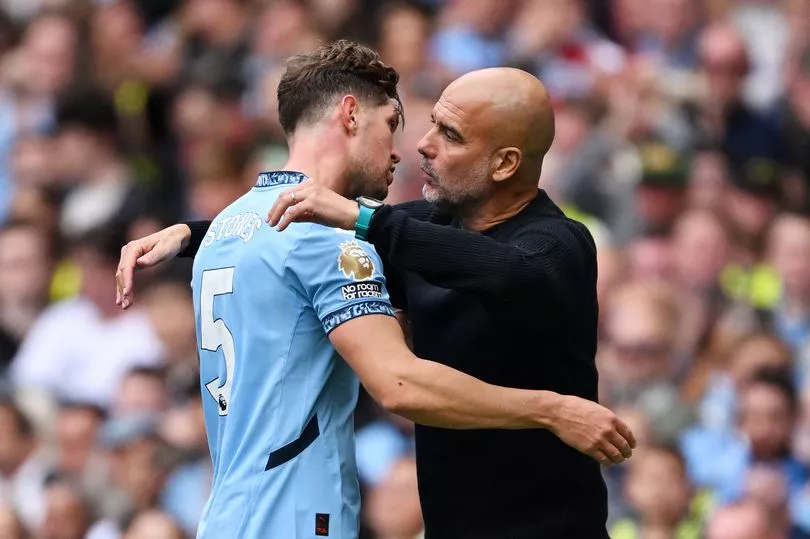John Stones, the Manchester City defender, has opened up about his limited playing time this season, expressing frustration but also showing maturity in handling the situation. Since limping off during England’s 0-0 draw with Belgium in March, Stones has started only two Premier League games for his club, raising questions about his role under Pep Guardiola.
Despite spending much of the season on the bench—ten times as an unused substitute and four appearances as a late sub—Stones remains focused and level-headed. The 30-year-old defender has found himself in the unusual position of being a more regular starter for England than City, yet he says experience helps him manage the frustration.
“I’ve been in this position before, where you’re in and out and don’t get a consistent run of games, but you still know how important you are to the team,” Stones reflected. “It’s about not getting frustrated and staying ready. I’ve had a positive impact when I’ve come off the bench and when I’ve started.”

Stones emphasized the importance of a positive mindset, saying, “At times like these, younger players might get frustrated, but it’s crucial to stay mentally ready. Otherwise, when you’re called upon, you’re not in the right frame of mind to perform.”
While he admits he would love to start every game, Stones remains pragmatic: “It’s a long season with a lot of important matches ahead. You’ve got to understand the bigger picture.”
Reflecting on his time with both City and England, Stones recounted how his injury during an international friendly left Guardiola frustrated—a common sentiment from club managers when players return hurt from national duty. “You know Pep’s not happy when his players get injured outside of his watch,” Stones admitted. “But as players, we want to play for our country, too. It’s about balancing the demands.”
Despite any frustrations, Stones maintains that his relationship with Guardiola is strong. “I’ve been with Pep for nine seasons now. He knows my strengths and weaknesses. It’s not about trying to prove myself to him; it’s about maintaining my standards.”
Stones concluded by sharing his approach to dealing with situations beyond his control: “If I can’t control something, I don’t give it much headspace. It’s about trust in the club and focusing on what I can do when I get the chance.”



